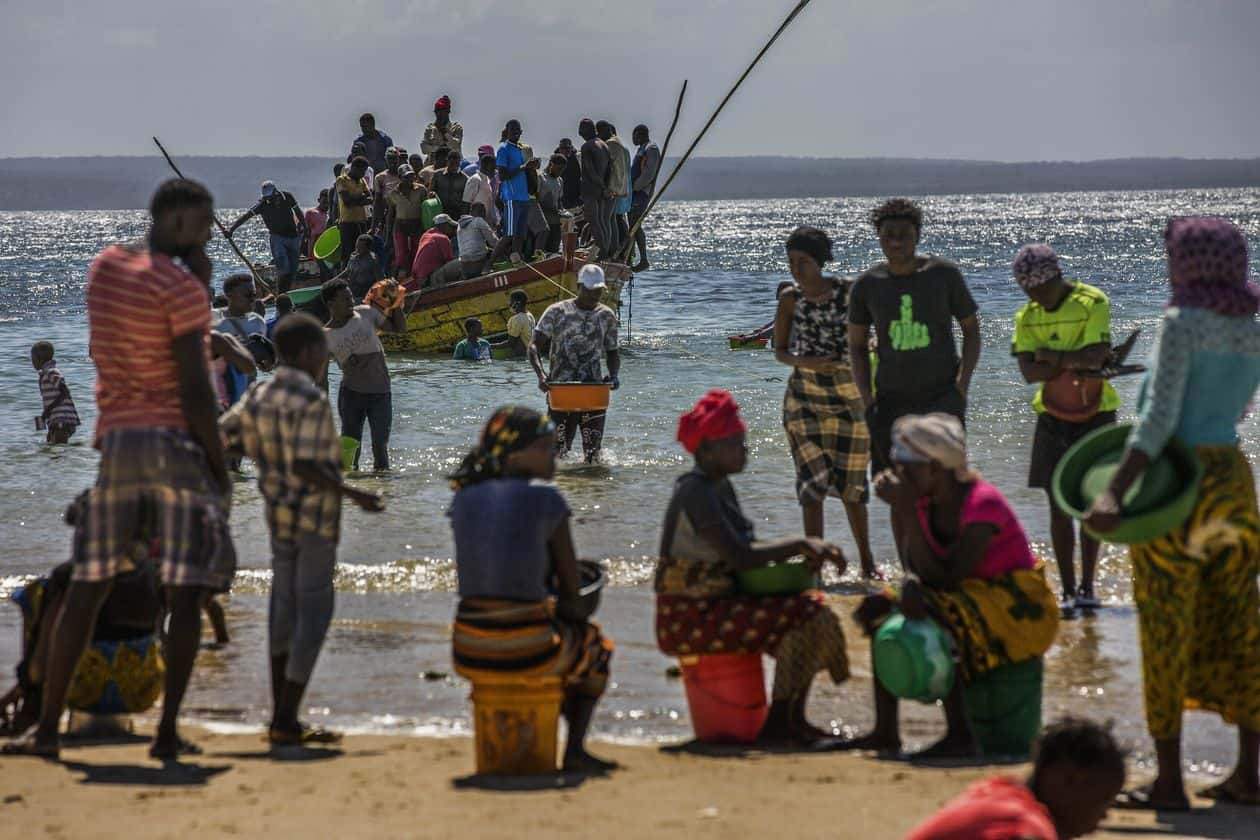Islamist Attacks in Mozambique Threaten to Disrupt Total-Led Natural-Gas Project

Fighting between Islamic extremist rebels and Mozambique’s army over a key port is threatening to disrupt the East African nation’s burgeoning natural-gas developments, including a multibillion-dollar project led by French energy giant Total SA .
The insurgent group, which is affiliated with Islamic State, seized control of the Mocimboa da Praia port this month and government troops have moved into the area on Mozambique’s northern coast on the Indian Ocean to mount an effort to regain control of the site.
The seizure of the port has interrupted the transit of oil and gas equipment through the port, a person close to the Mozambican government said. Much of Mocimboa’s infrastructure has been vandalized, he said.
This person said the rebels had sunk a security forces reconnaissance vessel and that as of Thursday, the Islamic State franchise was fighting the Mozambican military from within the port.
The rebel group, which stepped up attacks in the northern part of the country last year, infiltrated several neighborhoods in Mocimboa da Praia, with the help of local accomplices, he said.
The rising threat to Mozambique’s gas fields underscores the expansion of the radical Islamic State in new territories following the loss of its strongholds in Syria and Iraq two years ago. It also reflects the inability of the security forces to stop militants from taking over key infrastructure in regions of Africa where ISIS is now expanding.
“ISIS was more organized and better equipped than the army,” said Lorino Machava, who lives in Mocimboa and is a dockworker at the port. “I could hear officers screaming that they were out of ammunition and petrol. The soldiers ran away.”
The Mocimboa da Praia port has been a logistics link for Total’s $23 billion natural-gas project, located 37 miles north. A month before the attack Total had secured $14.9 billion in senior debt financing for the project.
“Two weeks ago it was full steam ahead, but now it’s let’s wait and see,” said a Japanese shipping executive involved in talks to build some 16 new liquefied natural gas carriers worth around $2.9 billion to move the LNG. “We were supposed to arrange the ship charters this month so we can order the vessels, but after the port seizure there is numbness. We don’t know what’s going to happen.”
Aderito Manjate, a truck driver who moves supplies for gas companies in the region, said the rebels have been “setting up camp in and around the port. There are no ships coming in and there are still fire fights. It’s very dangerous.”
Data from Marine Traffic, a Greece-based vessel-tracking service, show no ships moving in and out of the port since late July, while other ports in the region including Maputo, Beira and Nacala to the south, appear to be operating normally.
“We have a robust security protocol in place with the authorities to ensure the security of the workforce and the operations,” Total said in an emailed statement.
The Total facility in Mozambique’s northern Cabo Delgado province involves the development of the Golfinho and Atum offshore natural-gas fields.
The project is one of three major energy developments planned in the country that have drawn significant foreign backing in recent years. Overall foreign investment in Mozambique’s gas sector has soared since a large gas discovery in 2010, and is estimated by energy executives at around $60 billion, four times the country’s $15 billion economic output last year.
The Total liquefaction project has been in the works for years under different owners. Total now controls a 26.5% slice and local energy firm Mitsui E&P Mozambique Area 1 holds 20%, with the rest split among other investors.
The project is expected to produce around 13 million metric tons of liquefied natural gas a year after completion in 2023, with European and Asian buyers already lined up for the output. It is on the Afungi Peninsula and depends on the Mocimboa da Praia port for the import of some building supplies and heavy equipment.
Apart from Total, Italy’s Eni SpA is leading a consortium building a separate $8 billion offshore project called Coral South.
“Eni is carefully monitoring the development of the situation and it keeps an active dialogue with the government of Mozambique,” said a company spokesman.
Exxon Mobil Corp. has delayed work on its Rovuma LNG facility in northern Mozambique.An Exxon spokesman said the company is working with the government to protect its workers and facilities but gave no timeline on when work will resume.
The Total site is being protected by private security contractors. Armored vehicles patrol a double-fenced perimeter, with snipers posted on high structures overlooking the facility. A ship terminal has been built for small vessels to dock.
“The strategy is to create a secure enclave. They have an airstrip, a port and staff living quarters,” said Alexandre Raymakers, senior Africa analyst at U.K.-based consulting firm Verisk Maplecroft. “The ultimate concern is ISIS-linked fighters going on a full frontal land and sea assault on the peninsula and taking over the site and taking hostages. That is the worst-case scenario.”
It’s the third time in the past 12 months that ISIS fighters have seized Mocimboa da Praia, with the army taking it back after intense fighting. Some 1,000 civilians in the country have been killed since 2017 when the ISIS attacks began and more than 200,000 have been displaced, according to the United Nations.
Photo: Passengers and cargo board a boat in Mozambique’s province of Cabo Delgado at a transit point for displaced persons fleeing armed violence in the northern part of the East African country. - PHOTO: RICARDO FRANCO/SHUTTERSTOCK











